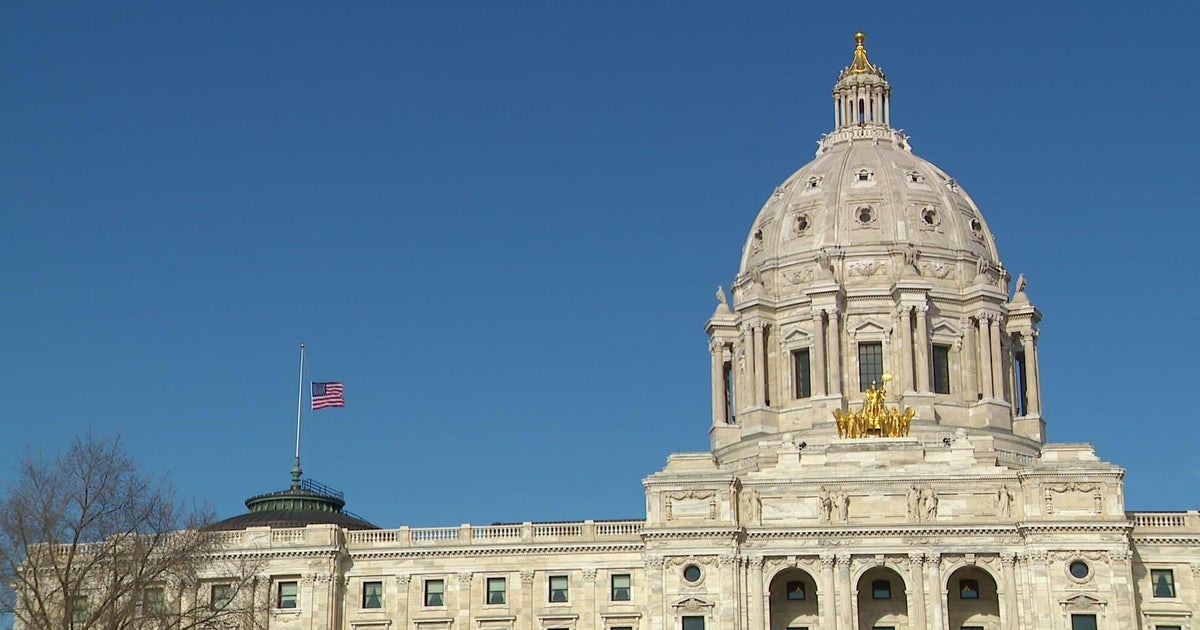Democrats are closer than ever to passing paid leave, but it hinges on what makes the cut in the reconciliation deal
Consuelo Hernandez has been helping take care of her father since he fell off a roof while she was in high school. More than a decade later, her father remains in and out of the hospital — and she's still taking care of him.
Without any paid leave to take care of aging parents, she's already exhausting the time off she has and scared of what the future holds. "I know that the care he's going to need down the road is just going to get a lot bigger," Hernandez said.
The coronavirus pandemic also exacerbated long-term challenges, forcing Americans to make tough decisions about work, family and staying healthy. Many Democratic lawmakers are betting the pursuit of family-focused policies like paid leave will outweigh backlash over the cost of the reconciliation package. Their argument: America can't afford not to, and the pandemic forced this issue front-and-center.
"For years we've been banging on doors in Congress trying to get our colleagues to focus on paid leave and other key caregiving policies—but these issues were seen as an after-thought to the so-called 'real economic' problems," said Senator Patty Murray, a Washington state Democrat, who has been pushing for paid leave since entering Congress in 1993, in a statement. "Now, COVID-19 has thrust these once-silent epidemics to the center-stage, and the whole country is seeing what everyone who's ever had to take care of themselves or a loved one knows in their heart: paid leave helps workers, makes businesses more competitive, and strengthens our economy as a whole."
The United States is one of just eight countries without paid parental leave, and the only high-income country, according to the Bipartisan Policy Center. It is also one of the only wealthy countries without a policy to care for loved ones.
Paid leave has broad support. CBS News polling found 73% of Americans support federal funding for paid family and medical leave. And those familiar with elements in the Build Back Better Act like paid leave, there's greater approval for the plan overall.
Democrats are trimming their $3.5 trillion bill to about $2 trillion, and paid leave is one of the programs at risk of being scaled back. Lawmakers have acknowledged there are multiple proposals on the table. While some Democrats are keeping the pressure on President Joe Biden for a "robust" paid leave provision, it could be reduced to four weeks and include income limits, according to sources familiar with talks.
The paid family and medical leave provision in the original proposal would allow U.S. workers to take up to 12 weeks for a new baby as well as paid time for serious illness or to take care of a sick family member. Workers would also get several paid days for bereavement. The amount workers on leave would be paid is based on how much they earn weekly. Most workers could receive two-thirds of their current wages while on leave, with low-wage workers getting closer to their normal pay.
For Kris Garcia, paid leave would have meant being able to be with his father for surgery, not having to discuss taking him off life support over the phone and not being suspended from work for taking too much time away due to complications with funeral arrangements — leading to further financial setbacks.
For Cinthia Alaniz, it would have meant not being home alone caring for five kids including newborn twins just days after having an emergency C-section because her husband did not have paternity leave.
If passed, this would be the first national movement on worker leave in the U.S. in nearly 30 years, reaching far beyond the Family and Medical Leave Act of 1993, which required eligible employers with more than 50 employees to provide up to 12 weeks unpaid leave.
"What we have is a kind of a patchwork system of employers who voluntarily offer paid leave to workers to varying degrees, and also a patchwork of state laws requiring workers to offer them," said Michelle Long, Senior Policy Analyst on the Women's Health Policy team at the Kaiser Family Foundation. "There are a lot of workers right now who have no access to paid leave."
Nine states and the District of Columbia have enacted their own paid family leave programs. Among private sector workers, only about 21% have access to paid family leave through their employers, and it's less likely to be available to low-income workers. Twelve states and D.C. have passed paid sick leave laws.
The current federal proposal would allow states and companies that already have programs that meet requirements to keep them, with some of the costs reimbursed. The plan would also provide money to small businesses to offset the cost of new programs.
"In those states where there are these state paid leave programs, women's labor force participation is increasing when these policies go into effect, and that's because it provides parents with a well defined off and on ramp to work," said Alix Gould-Werth, from the Washington Center for Equitable Growth. She argued it could help address the workforce shortages the country currently faces.
Changes at the state level have helped break down opposition to the idea, Democrats argue.
"We have the data, we have the track record, we're beginning to get consensus within the business community that this is good for the country, for their bottom line, and for the economy," said Senator Kirsten Gillibrand, a New York Democrat.
In states that have paid leave programs research has shown it increases worker productivity and reduces turnover and associated costs, Long said.
Even without a federal paid leave program, there has been a surge in companies offering paid family and medical leave between 2016 and 2020 and more recent data could move that higher with the pandemic. The tax law passed in 2017 created a federal tax credit for employers offering paid family and medical leave to employees.
But forcing companies to meet government criteria could lead to more rigid, less generous policies, said Rachel Greszler, a research fellow at the Heritage Foundation.
"There are more flexible policies out there, and I think that's what goes away when you have it going through a one-size-fits all program," Greszler said. "Yes, there are some workers out there who currently don't have access who would gain access through this, but there's many cases where the people who don't yet have access would still be prevented under this program."
Greszler also anticipates a national paid leave program would cost far more than current estimates while not going nearly as far as hoped. At the same time, she said much of the taxpayer dollar windfall would still go to the larger companies.
With a 50-50 split Senate, Democrats need every member of their caucus to support the reconciliation bill. As some Democrats have raised alarms over its price tag, lawmakers are negotiating what will be included in the final legislation. But Democrats appear optimistic about closing in on a deal. No Republican lawmakers support the plan.



